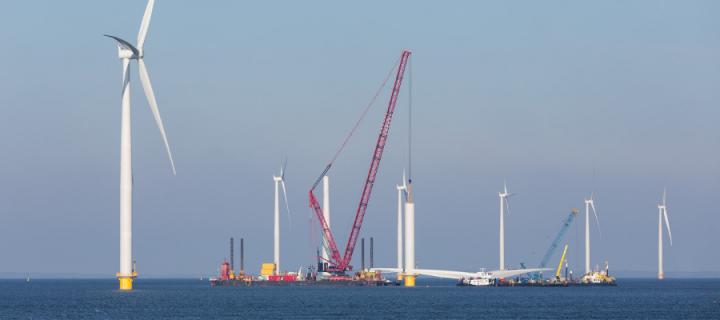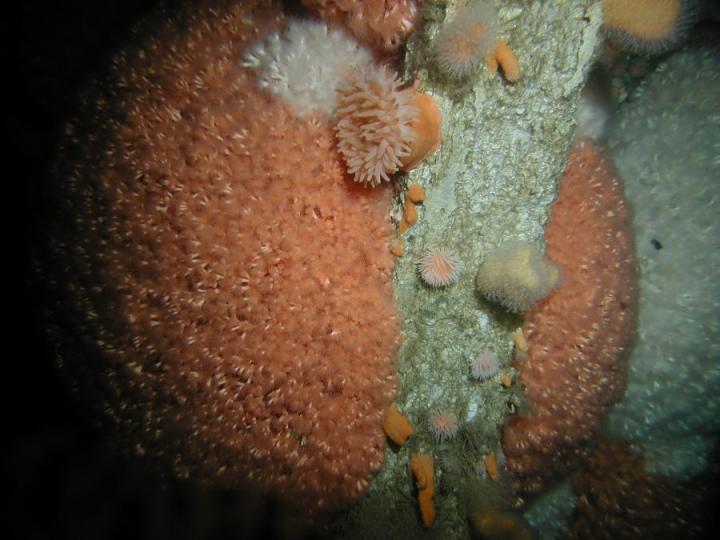Marine Energy Engineering & Environment
University of Edinburgh researchers have expertise crossing both engineering and ecological aspects of marine energy systems.
The marine environment has been a vital source of energy for decades. We are now witnessing a major transition from fossil fuel to renewable energy, with consequent need to safely decommission oil/gas installations. Marine renewable energy can be generated by wave, tidal, and offshore wind facilities and has a crucial role to play in emissions reduction targets.
Marine renewable energy research at the University of Edinburgh:

At the University of Edinburgh, researchers from the School of Engineering undertake world-class research on offshore renewable energy processes, ranging from resource assessment and prediction, to converter design, and optimisation.
In collaboration with offshore industry, our researchers are working to develop solutions to real-world problems faced in the marine renewable energy sector, such as constraints related to connecting marine renewable energy to the grid in an efficient manner.
Our researchers are currently involved in a wide-range of marine renewable energy projects:
- TROPOS: Modular Multi-use Deep Water Offshore Platform Harnessing and Servicing Mediterranean, Subtropical and Tropical Marine and Maritime Resources.
- RealTide: Advanced monitoring, simulation and control of tidal devices in unsteady, highly turbulent realistic tide environments.
- TorqTidal: Mitigating Torque Pulsations in Tidal Current Turbines.
- PolyWEC: New mechanisms and concepts for exploiting electroactive Polymers for Wave Energy Conversion.
The Supergen Offshore Renewable Energy Hub:

Established in 2018, the Supergen ORE Hub has a wide-ranging remit, and aims to connect stakeholders, support research and innovation, and maximise the societal value of offshore renewable energy.
Role of man-made structures in the marine ecosystem

There are many thousands of man-made structures in the marine environment from shipwrecks to oil/gas platforms and offshore wind turbines. As marine renewable energy expands we are witnessing an unprecedented expansion in the number of man-made structures. Edinburgh researchers are studying the role these structures play in the marine environment so the best environmental solutions can be found to manage decommissioning structures at the end of their lives or the installation of new structures.
Examples of this work include:
- Working with INSITE (INfluence of man-made Structures In the Ecosystem).
- Leading the INSITE's 1st phase Data Initiative.
- Leading the INSITE's 1st phase Appraisal of Network Connectivity between the North Sea subsea oil and gas platforms as part of the ANChor project.
- Examining data challenges and opportunities for environmental management of North Sea oil and gas decommissioning.
- Examining how ocean sprawl facilitates dispersal and connectivity of protected species.

